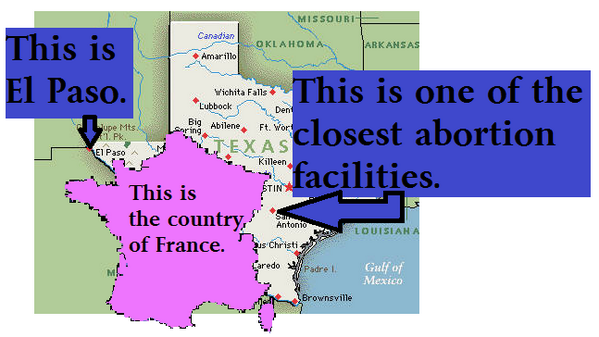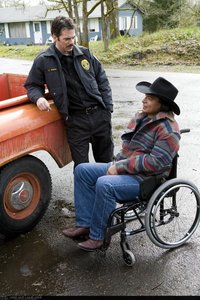After watching
The Punk Singer - an amazingly moving and inspiring film about the life and work of Kathleen Hanna - I spent the bus ride home grinning insanely while listening to Bikini Kill and deciding that my bank account could go fuck itself as I needed to read
Girls To The Front:: The True Story of the Riot Girl Revolution immediately.

(Interesting historical sidebar: I proposed to Kathleen Hanna once, during a euphoric stage invasion at a Le Tigre gig at the Astoria. I didn't know she was married herself at the time, but I'm just saying, she didn't say no.)
So I read it, and I loved it, and I heartily recommend it. But: it was incredibly sad reading about the movement's general lack of attention to class and race issues, and shoddy ways of dealing with criticism along these lines.
Where have I heard that before?
Oh right,
fucking everywhere. Every single time feminism has a notable upsurge, it founders on the rocks of ignoring race and class. (And sexuality and gender identity and disability and sex worker issues and and and, obviously. I'm focusing on the Big Three of gender, race and class - the Axis of Evil, if you will - because they cut across the lives of the vast majority of people on the planet and are the most widely talked about, meaning that we have the theory and data we need, regardless of whether we actually use it.)
Why can't we learn from our mistakes? Why do we repeat the same stupid shit every single time? Why do we insist on using a movement designed to end oppression, to perpetrate oppression on others? Why, in the immortal words of Neil Young, do we keep fucking up?
This is not a rant. This is a genuine question. Do you know why we keep doing this?
Some ideas I've brainstormed:
Intersectionality is so hard,
waaaah: A single-issue campaign is relatively easy, intellectually. You have an immediate problem and you work together to find a solution. Organising against sexism is harder (because there are so many more issues to cover, so many more fronts on which to fight) but you can still focus on a common enemy. ("You", in this case, being the archetypal white middle-class feminist.) But add another axis of oppression into the mix - or, god forbid, try to tackle the kyriarchy in its entirety - and you have to consider ways in which
you yourself are the oppressor. From the comparatively simple position of "sexism hurts me", you have to notice that the things you do and/or benefit from are hurting other people.
Which is obviously not a reason not to do it. If exercise isn't hurting, in that good, feel-the-burn way, it's also not helping. If social change isn't difficult, it's not really change. No one said the revolution was going to be easy.
But it might be a reason why people are reluctant to do it: after years of being crapped on by the patriarchy, they finally find a space where they can rise up against it, learn to love themselves in a culture which tells them they are nothing. So when they're asked to turn a similar spotlight on themselves, they don't want to lose their happy place.
Money/time/energy/power: The more oppressed you are by a particular system, the more difficult it is to fight it. This is multiplied exponentially when there are multiple systems of oppression crushing your will to live. So the people in leadership positions within feminism (be that professional organisers, public figures, or just the dominating personality of your local discussion group) tend to be those who are white and middle-class. There are dozens of reasons for this - the higher self-esteem that comes with social power; the prejudices of those who chose their leaders, and so on - but an undeniable factor is that whiteness, money, time and energy tend to be concentrated in a very few people. If you're working two jobs to pay the rent and feed your kids, when do you have time to go to a discussion meeting? If you're too exhausted to think after eight hours standing over a production line, are you going to put yourself forward for a position you'll be too knackered to fulfill?
In this way, the "least oppressed" members of a group (I hate putting this in terms of a scale, as if your Level Of Oppression could be given a numerical value on the Universal Scale of Fuckedupitude, but hopefully you know what I'm getting at) gravitate to leadership positions, while women of colour, and poor women, remain in the rank and file - or drift away or burn out completely.
Margins and centre: In
From Margin To Center, bell hooks made the brilliantly mind-bending point that people on the margins are, by necessity, informed about the norms of the centre - whereas those in the centre are not required to be similarly informed about the margins. So a Geordie knows she has to code-switch to Received Pronunciation to be taken seriously as a "professional" - but someone with a Home Counties accent has no need to learn Geordie. People with mental health issues know full well how they are supposed to act in a world which expects everyone to be neurotypical - but mentally healthy people on the whole know shit-all about bipolar disorder. Women of colour and poor women know all too much about the needs and aspirations and goals of middle-class white women - but middle-class white women are not so well informed about the world outside their own little leaning-in bubble.
In this way, white middle-class women can build a movement which they assume to address the needs of All Women - but which in fact only addresses the needs of white middle-class women, because they
genuinely don't know anything about the needs of poor women and women of colour, because the way society is structured makes it perfectly possible not to know these things.
...
What now?
So what can we do about it? How can we build a feminism that isn't doomed to repeat the mistakes of our predecessors in marginalising, ignoring, and trampling on the needs of poor women and women of colour? And, while we're at it, of trans women and sex workers and people with disabilities and gay ladies and everyone else in the world?
Again, this is not a rhetorical question. I want to know what you think. I want you to ask everyone you know who calls themselves a feminist, and I want us to put this at the top of our priority lists, because I can't watch us fail again.
Some ideas:
Listen. This is obvious, and has been covered endlessly in the feminist blogosphere, but it bears repeating: we need to
listen when someone tells us that we've fucked up; listen to their arguments, to their concerns, to their complaints. Consider what we've done and how we can stop ourselves doing it again. Thank them for it: they're doing us a favour.
Think: It's good to be open to criticism, but it's better not to fuck up in the first place. (The fact that we're undoubtedly going to fuck up is no reason not to try.) When we're setting up discussion groups and talks and charities and pressure groups we need to think about where we're holding our meetings, when we're holding them, who we're inviting, what we're talking about - everything that might make it unappealing, inaccessible, or offensive to people who aren't exactly like us.
Go out of our way: The East Massachusetts Abortion Fund (who, by the way, are probably the most amazing talent show gang you will ever see perform - their interpretation of the Journey classic,
Don't Stop Funding, was a phenomenon that will stay with me), when I met them, were halfway through a year of conscious anti-racism: of evaluating their every decision, policy and activity in the light of how it would impact people of colour. How awesome is that? Sure, in an ideal world you'd do that automatically for every marginalised group - but then, in an ideal world you wouldn't have racism to begin with. No, you can't be perfect, but you can try really fucking hard to do what you can.
...
What else? For real. Tell me. This is not a rhetorical question.

















.JPG)
_01.jpg)








